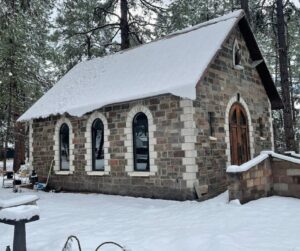Masonry is a fundamental component of construction, and the materials used in block production significantly impact performance, efficiency, and cost. While many masonry producers struggle to source lightweight aggregates, Block-Lite has a unique regional advantage—our blocks are naturally lightweight due to volcanic materials from the San Francisco Peaks.
In many areas, lightweight CMUs (concrete masonry units) are a premium product, often commanding higher prices because lightweight aggregates are more difficult to obtain. However, at Block-Lite, we can offer a superior lightweight block at a competitive market price due to the natural composition of our local aggregate sources.
The topic of weight classifications in masonry can be complex and often misunderstood, even by industry professionals. But one thing is clear: lightweight CMUs provide substantial benefits over their heavier counterparts in terms of efficiency, cost, and performance.
Understanding Masonry Weight Classifications
Masonry units are categorized by weight into three main classifications:
- Lightweight: Less than 105 lbs. per cubic foot
- Medium Weight: Between 105 – 125 lbs. per cubic foot
- Normal Weight: Over 125 lbs. per cubic foot
Lightweight block is preferred in many applications because it offers improved insulation, easier handling, and reduced transportation costs, yet it is often difficult to source. This is because most block producers rely on locally available aggregate materials, which in many cases are denser and heavier than the lightweight volcanic materials found in Northern Arizona.
For a deeper dive into how unit weight classifications affect masonry performance, check out this article from Masonry Magazine.

Why Lightweight Block Matters in Construction
Lightweight CMUs provide several distinct advantages over medium-weight or normal-weight blocks. Some of the most significant benefits include:
- Faster & More Efficient Installation
One of the biggest challenges on construction sites is labor fatigue. Lightweight block reduces strain on workers, leading to:
- Faster laying times – Less weight per unit means masons can work more quickly. According to Masonry Magazine, masons are 17% faster with lightweight block, than with normal weight CMUs.
- Reduced worker fatigue – Easier handling leads to fewer injuries and improved job site productivity.
- Lower labor costs – With faster installation, projects can be completed more efficiently.
- Lower Transportation Costs
The logistics of moving building materials can be expensive, but lightweight block offers advantages:
- More blocks per truckload – Lightweight CMUs allow for more efficient transportation.
- Lower fuel costs – Reduced weight leads to lower fuel consumption and delivery expenses.
- Less wear on equipment – Forklifts and transport vehicles experience less stress with lighter loads.
- Better Thermal Performance & Energy Efficiency
Insulation plays a critical role in a building’s long-term energy costs. Compared to denser materials, lightweight CMUs offer:
- Improved R-values – Better thermal resistance means buildings retain heat in winter and stay cool in summer.
- Lower HVAC costs – Reduced energy consumption for heating and cooling.
- More sustainable building practices – Lightweight materials help contribute to energy-efficient structures.
- Environmental & Sustainability Benefits of Lightweight Block
As sustainability becomes a greater focus in modern construction, lightweight CMUs offer distinct advantages over heavier masonry units. By using volcanic aggregate, Block-Lite’s blocks provide:
- Lower carbon footprint – Reduced transportation weight leads to lower fuel consumption and emissions.
- Less demand for high-energy quarrying – Natural lightweight materials require less processing than denser aggregates.
- Potential LEED certification benefits – Projects using lightweight CMUs may qualify for LEED (Leadership in Energy and Environmental Design) credits, particularly in categories related to energy efficiency and sustainable materials.
Lightweight CMUs contribute to more energy-efficient buildings, helping contractors, developers, and property owners reduce heating and cooling costs over the lifetime of a structure.
Block-Lite’s Competitive Advantage
Many manufacturers charge a premium for lightweight block due to the high cost of sourcing lightweight aggregates. However, Block-Lite has a unique advantage—our volcanic-based aggregates naturally create lightweight CMUs at no additional cost to the customer.
Unlike other regions where block producers rely on denser, heavier aggregates, our local material supply allows us to manufacture a higher-performing product at a market-competitive price. This means contractors, masons, and architects can take advantage of the efficiency and performance of lightweight block without the added expense.
Common Misconceptions About Lightweight Block
The topic of weight classifications in masonry can be complex and often misunderstood, even by industry professionals. Here a few common misconceptions about Lightweight Block.
- Misconception: Lightweight Block is Weaker
- Some builders assume that because lightweight blocks weigh less, they must also be less durable. This is false. Block-Lite’s lightweight CMUs are engineered to meet or exceed ASTM C90 requirements, meaning they deliver the same structural performance as traditional heavier blocks but with added benefits such as easier handling and improved insulation.
- Misconception: Lightweight Block is Always More Expensive
- While this is true in many areas due to sourcing difficulties, Block-Lite’s access to local volcanic aggregate allows us to offer lightweight CMUs at a standard market price. Other regions must import lightweight materials, leading to higher costs—but Block-Lite’s regional supply chain advantage eliminates this issue.
- Misconception: Lightweight Block Doesn’t Insulate Well
- Another common myth is that lightweight CMUs provide worse thermal performance than heavier blocks. In reality, they often offer better insulation. The air pockets within lightweight aggregates improve R-values, leading to enhanced energy efficiency in buildings.
Why This Matters for Your Next Project
When choosing masonry materials for commercial, residential, or industrial projects, considering the weight, durability, and cost-effectiveness of your block selection is essential. Block-Lite offers:
- A superior lightweight CMU at standard market pricing
- Enhanced performance without the premium cost
- Faster, more efficient construction with lower labor expenses
- Sustainable, energy-efficient building solutions
If you’re interested in learning more about Block-Lite’s lightweight CMUs, we’re here to help. Contact us today for technical insights, product details, and pricing information to see how our products can improve your next project.
For more information on masonry weight classifications and industry trends, be sure to check out this Masonry Magazine article.





